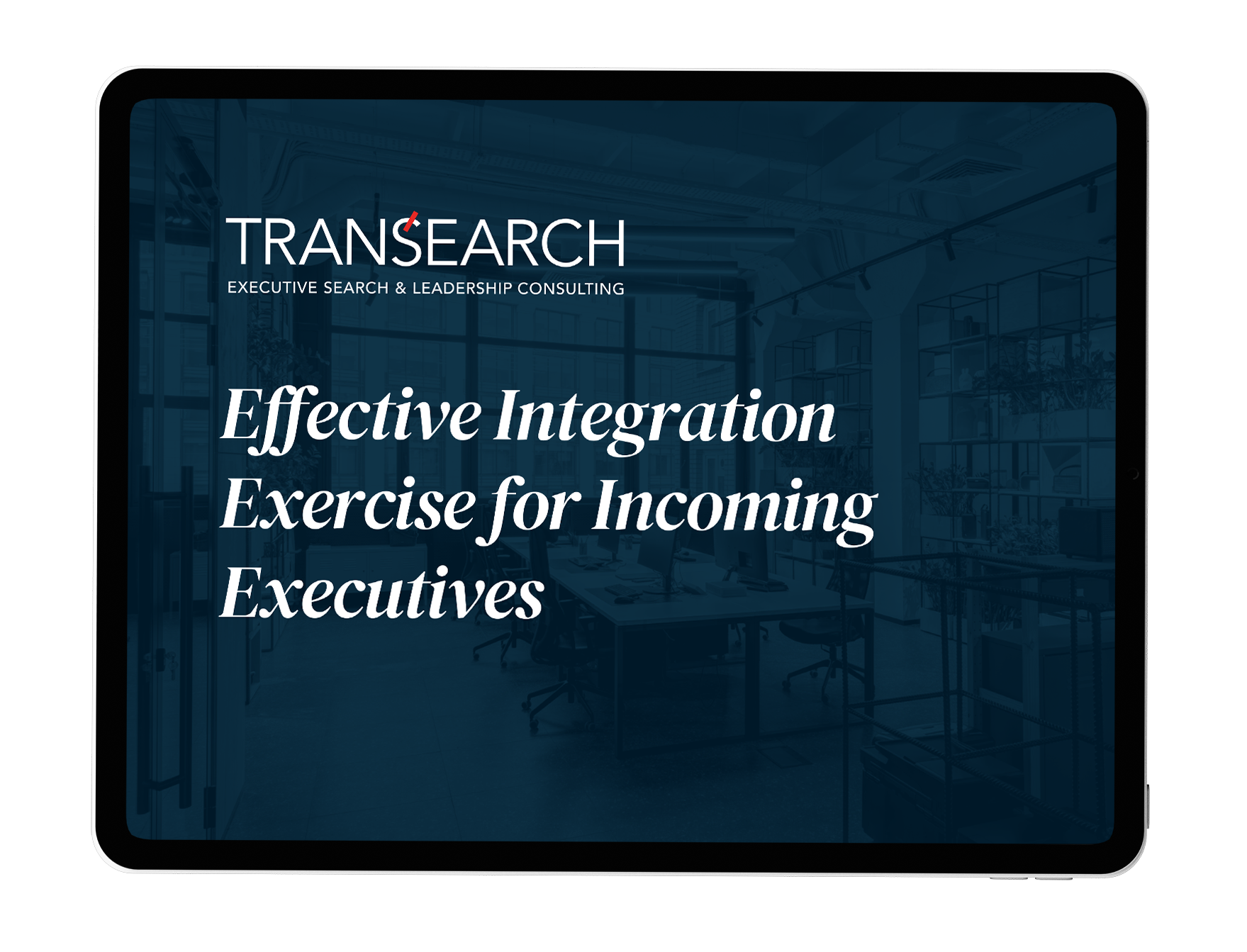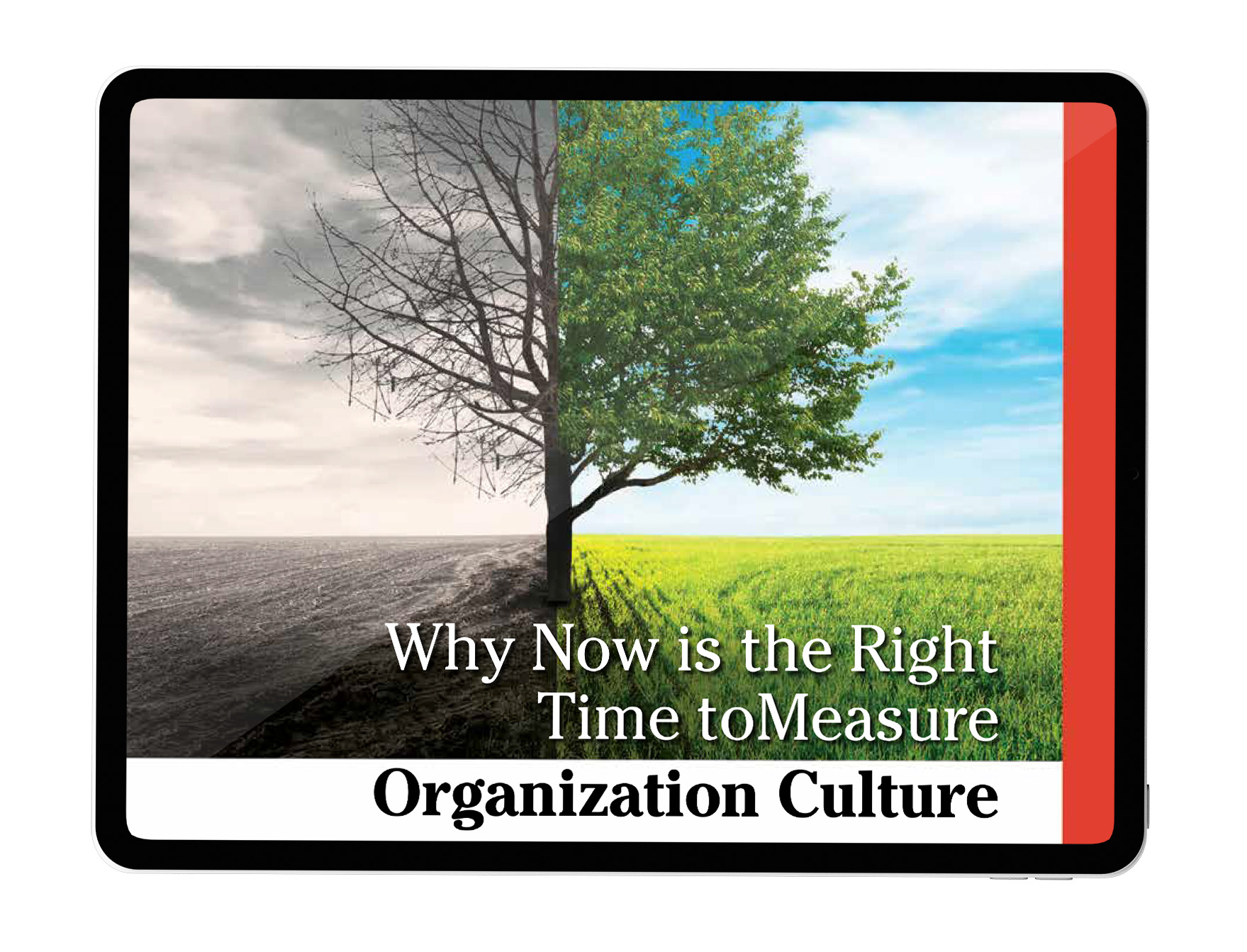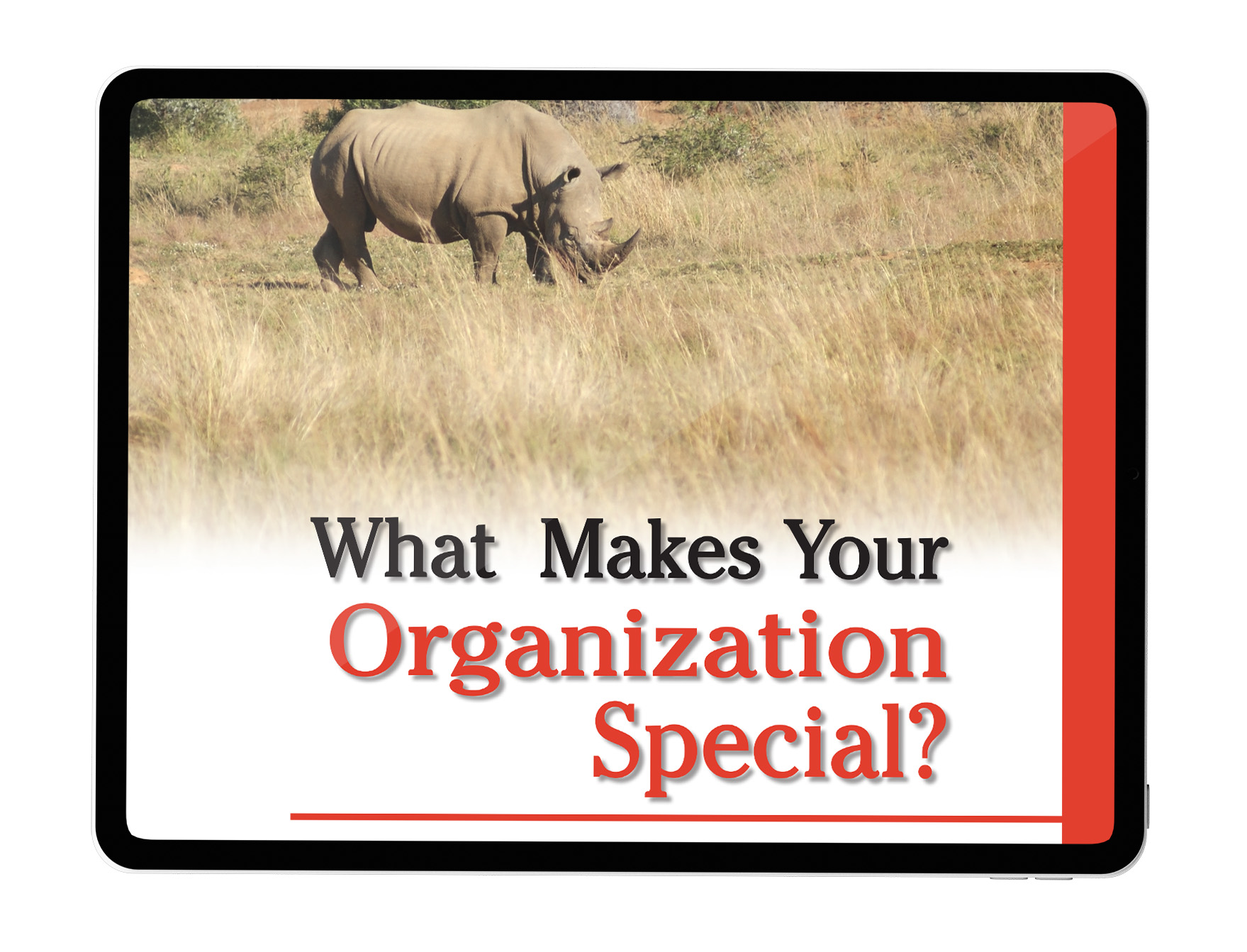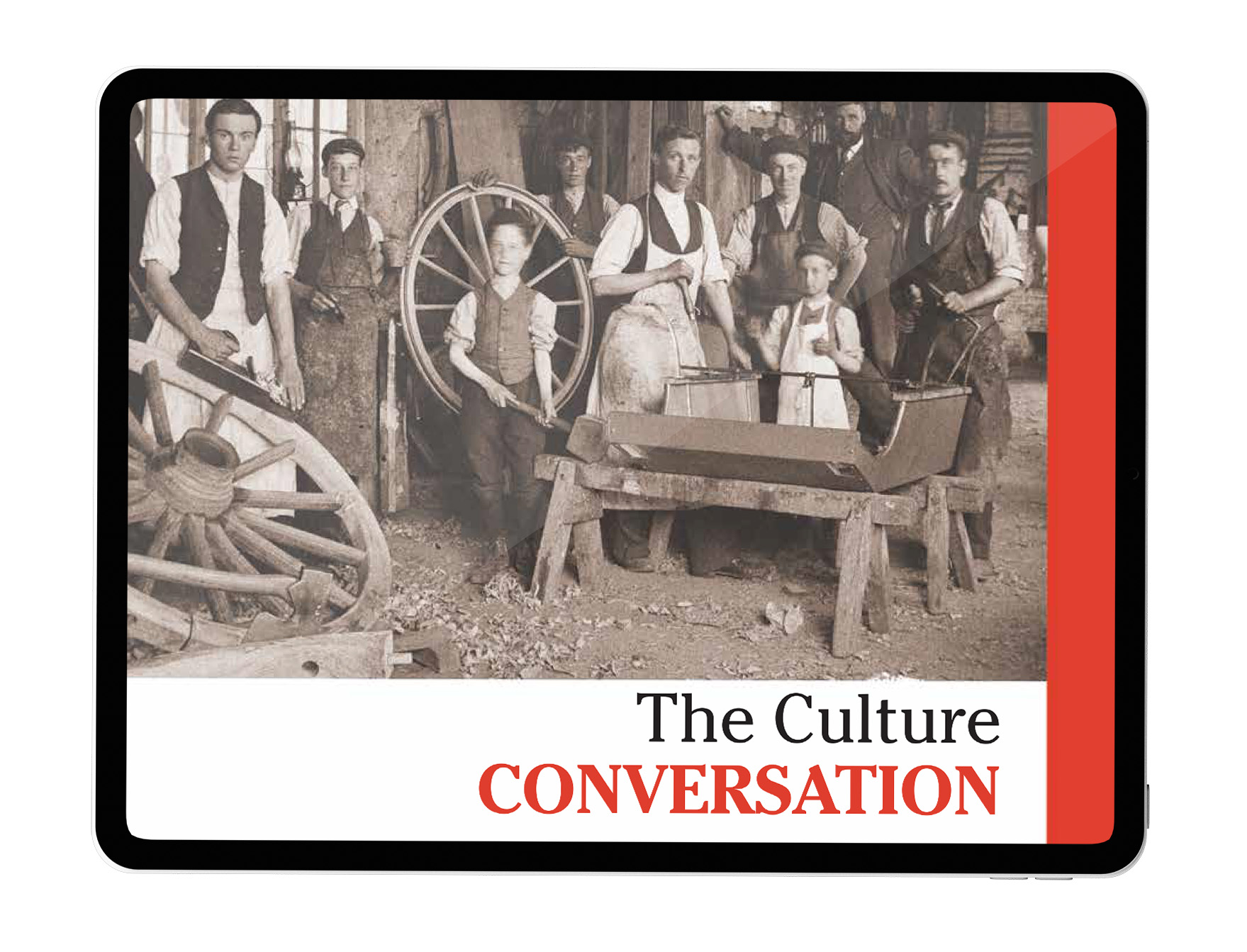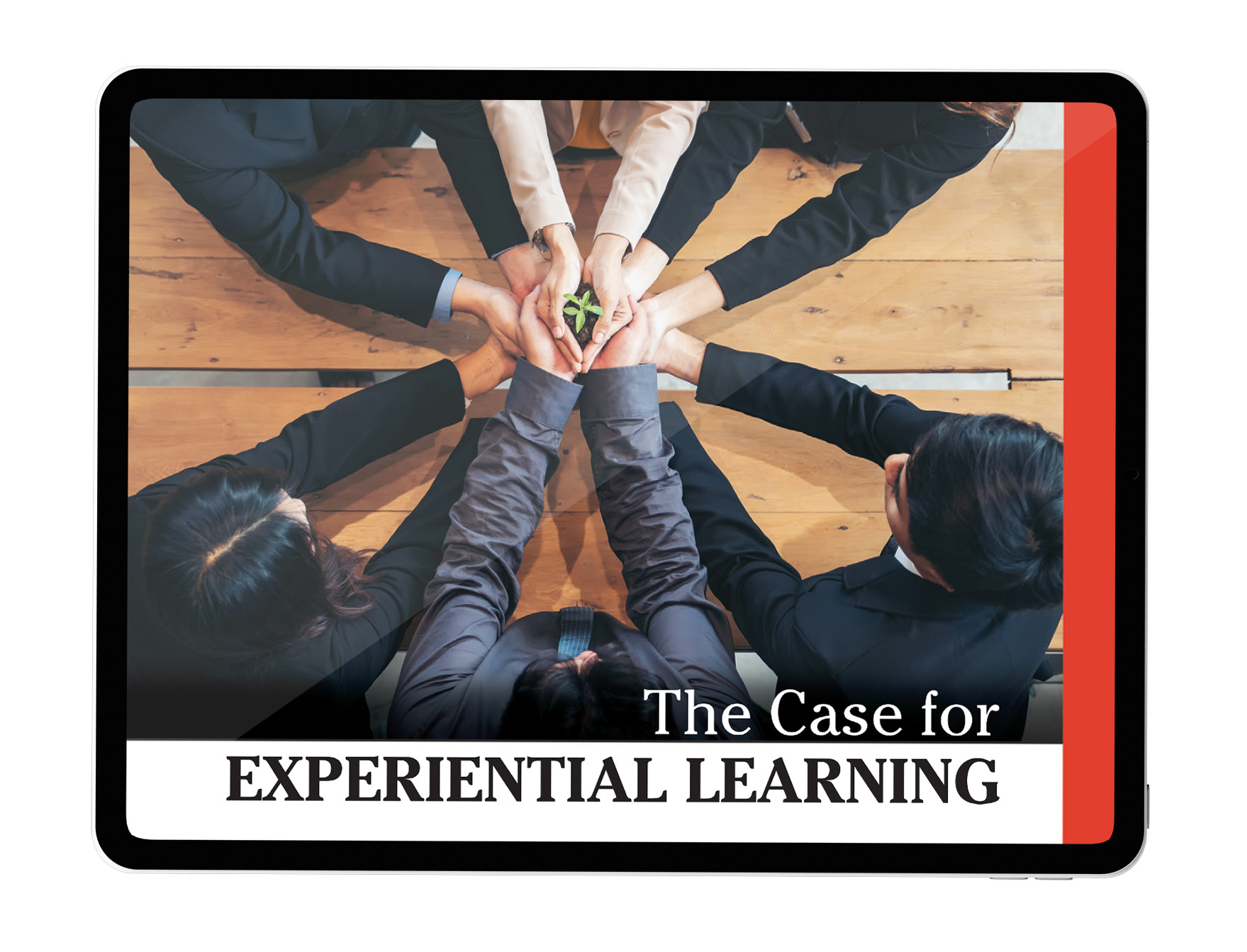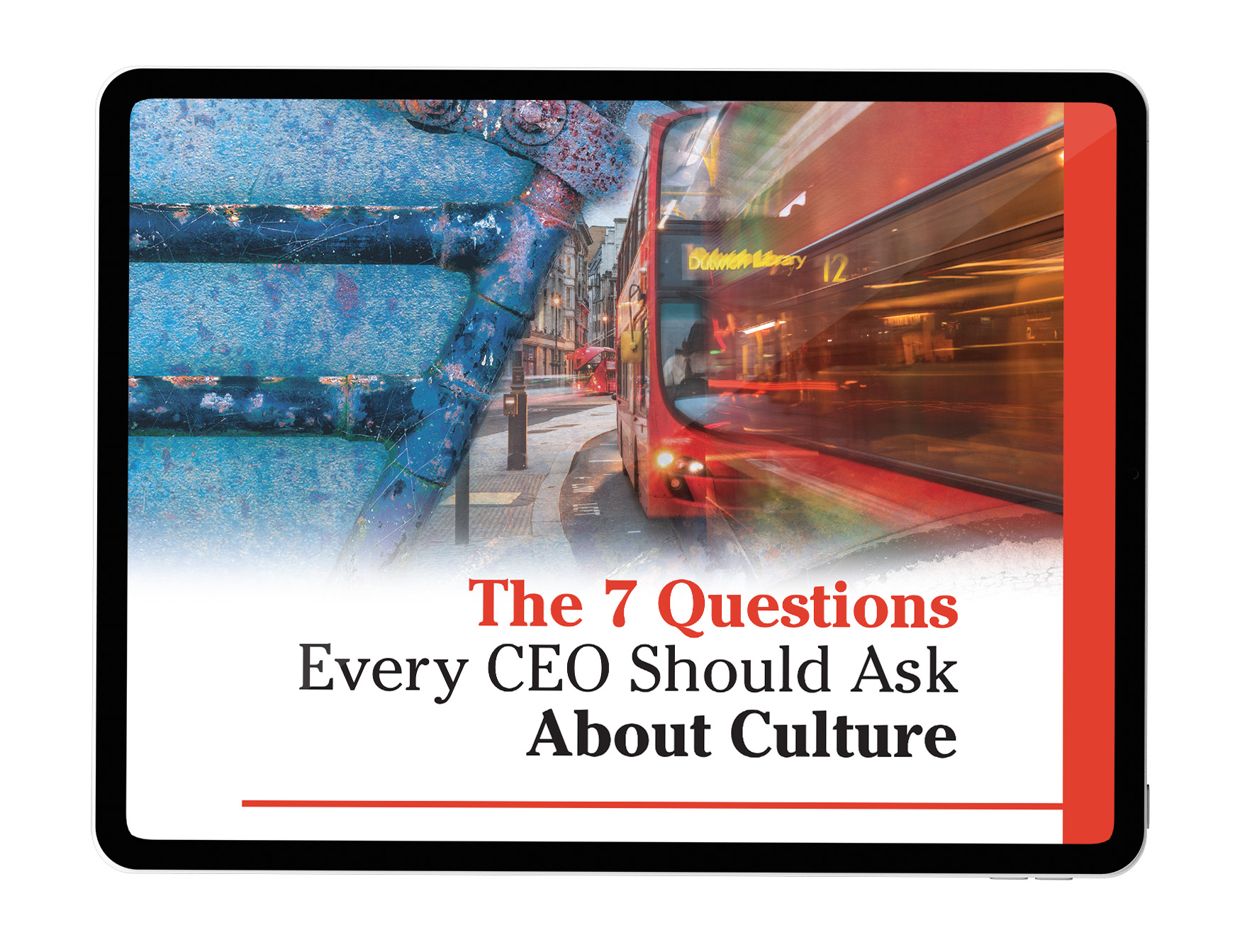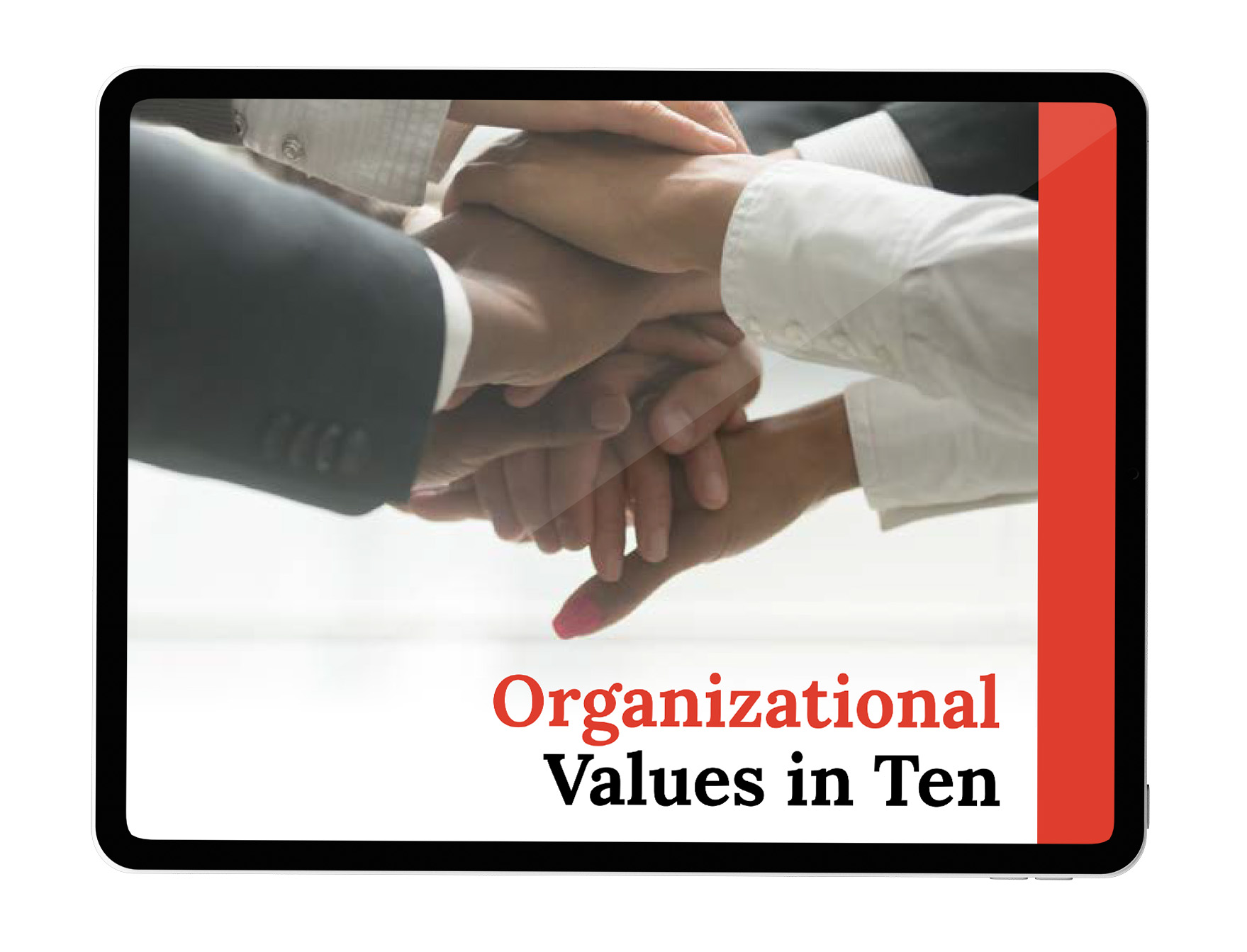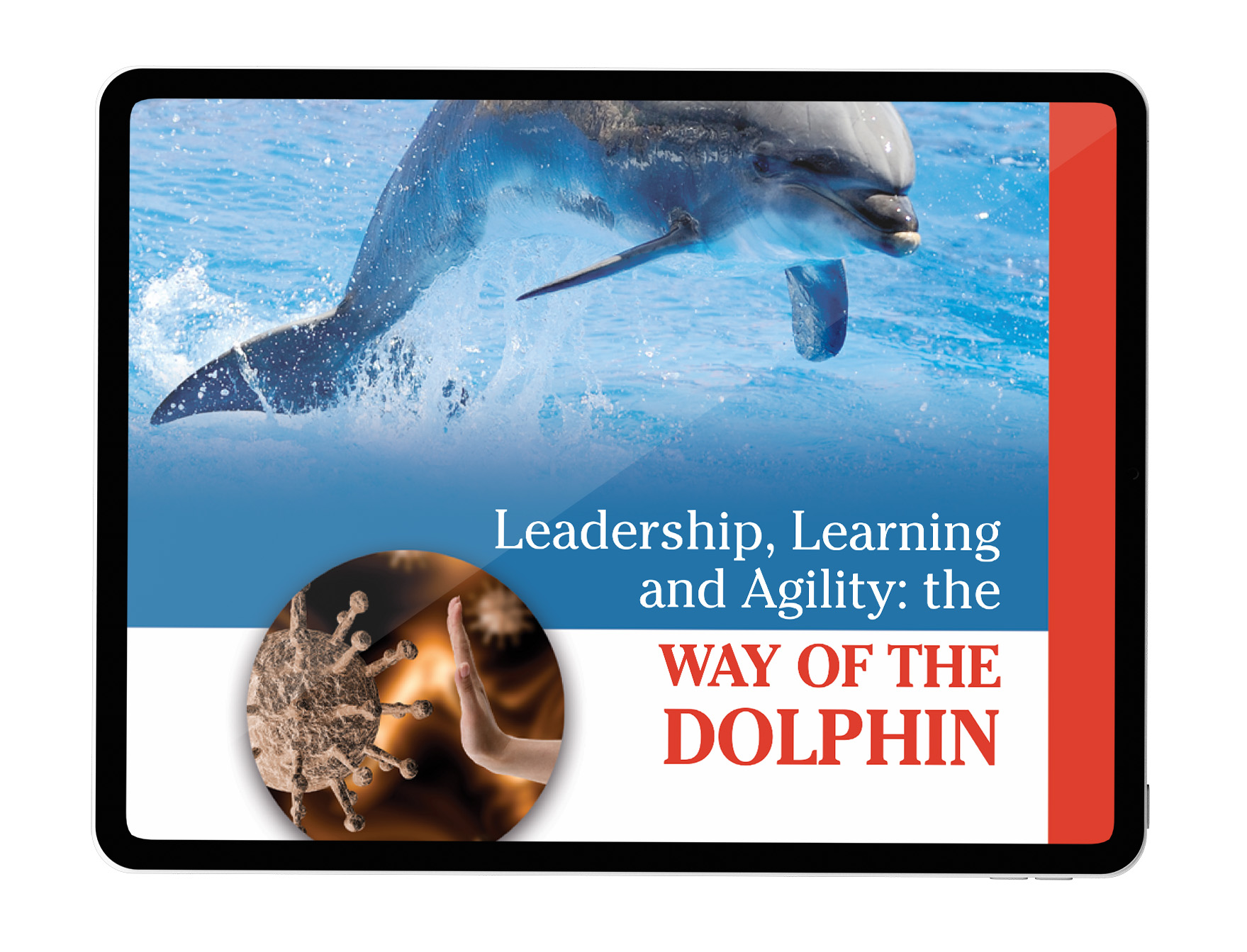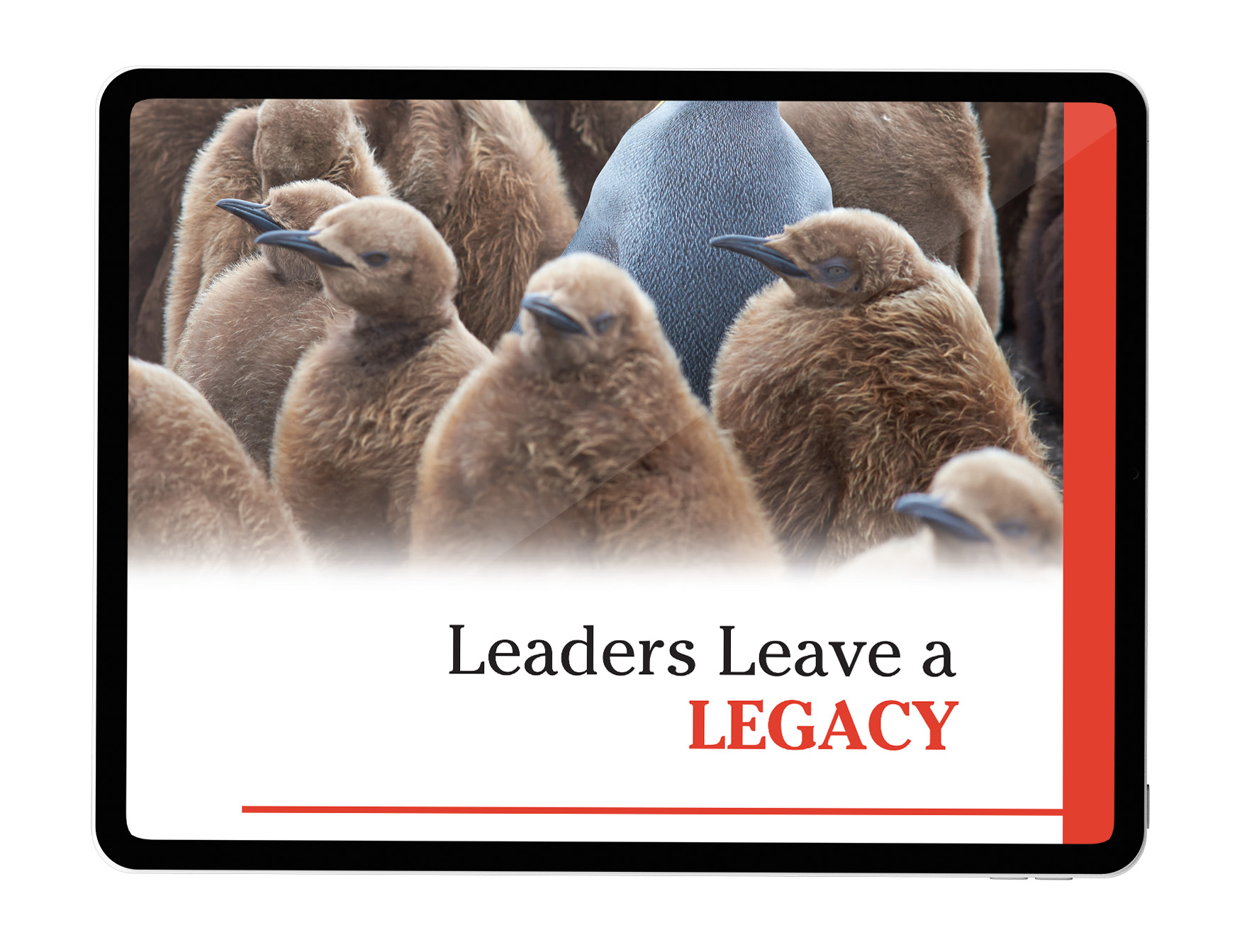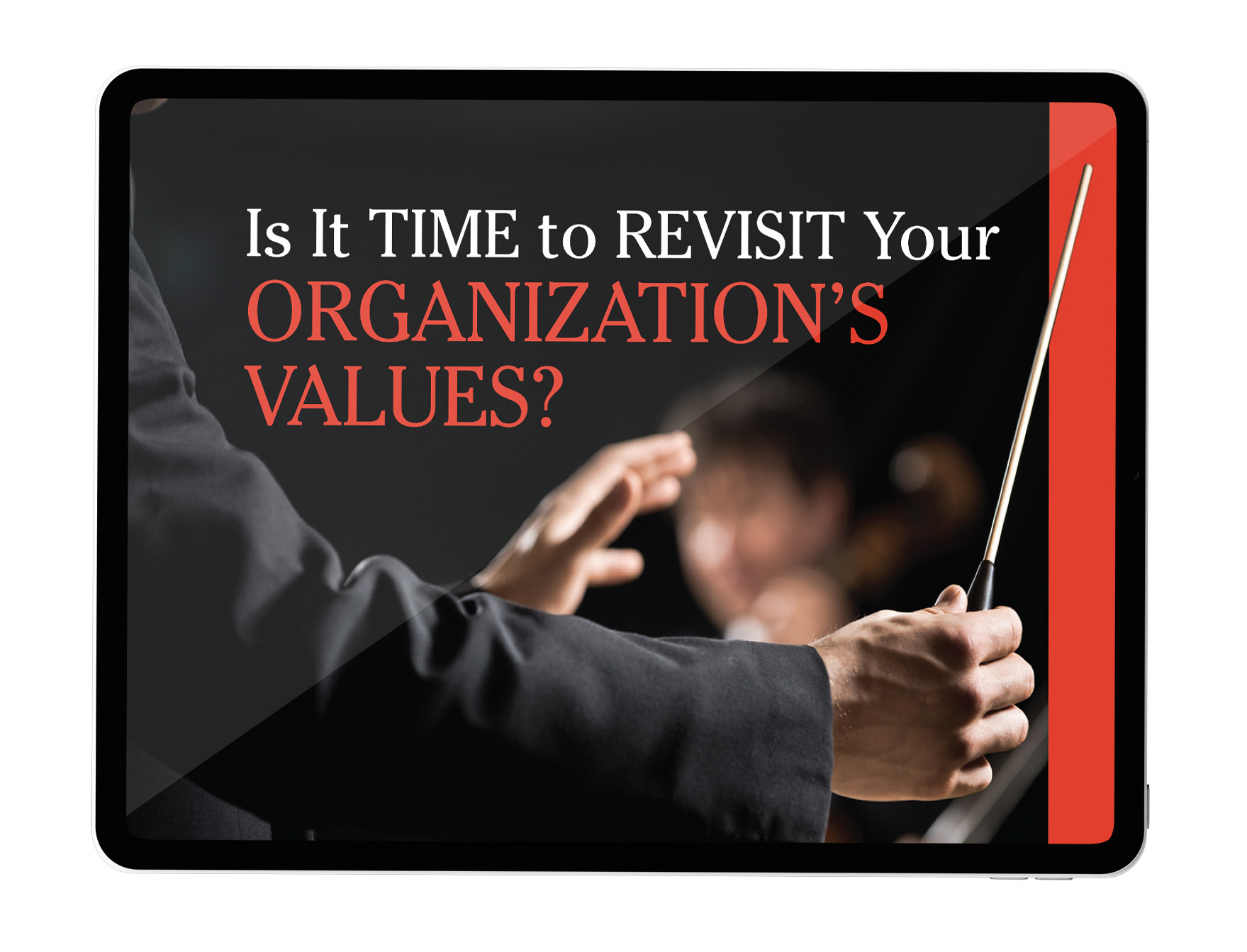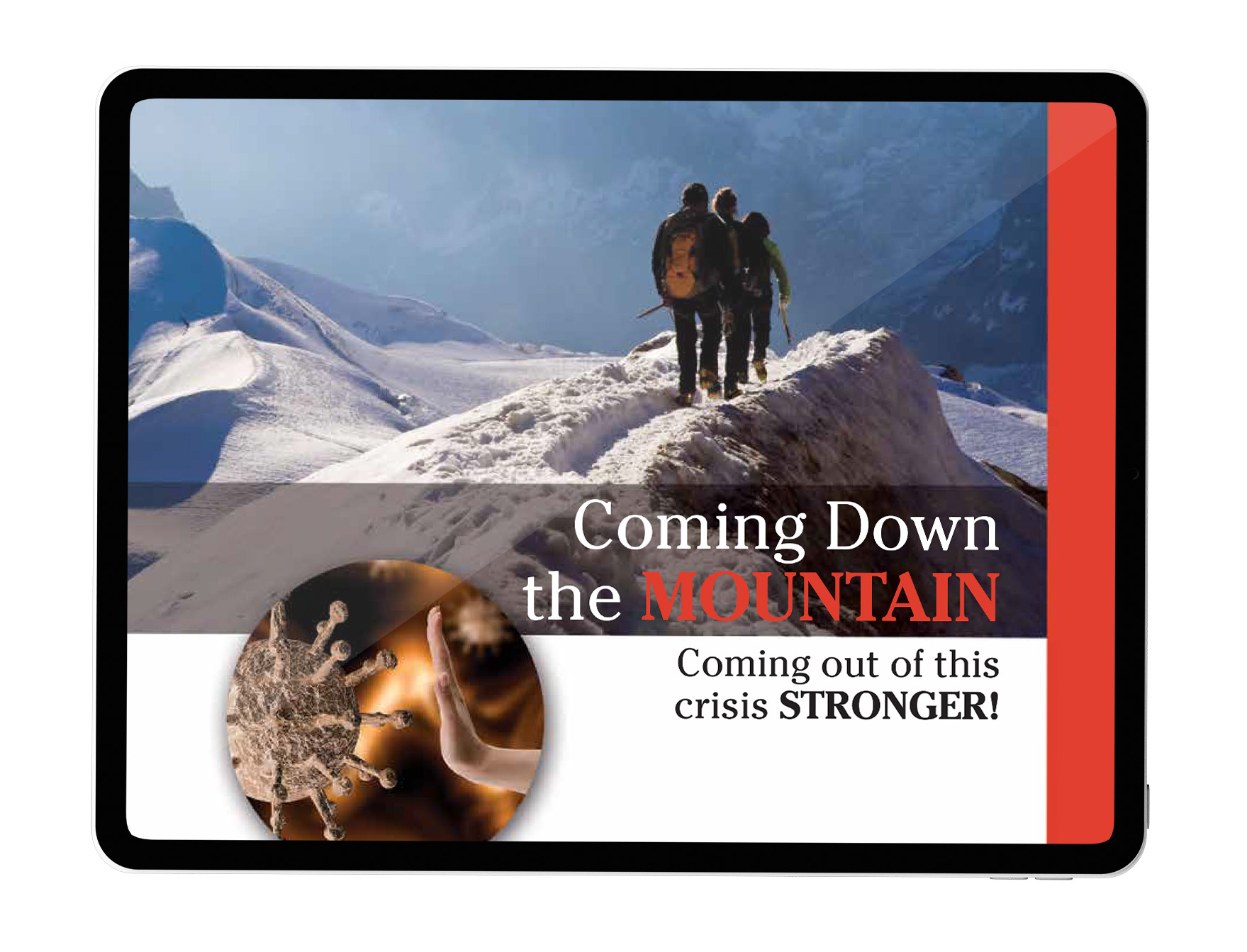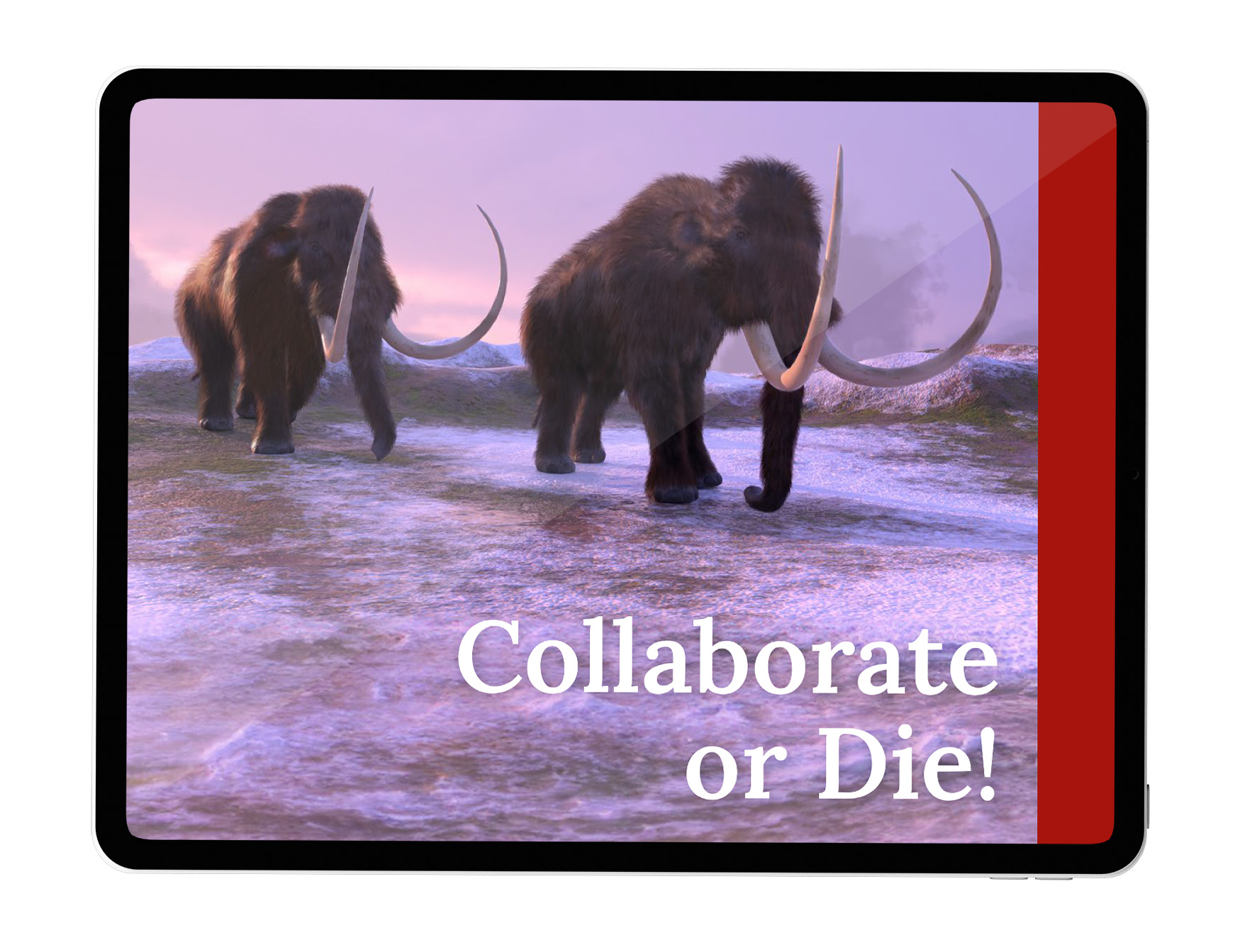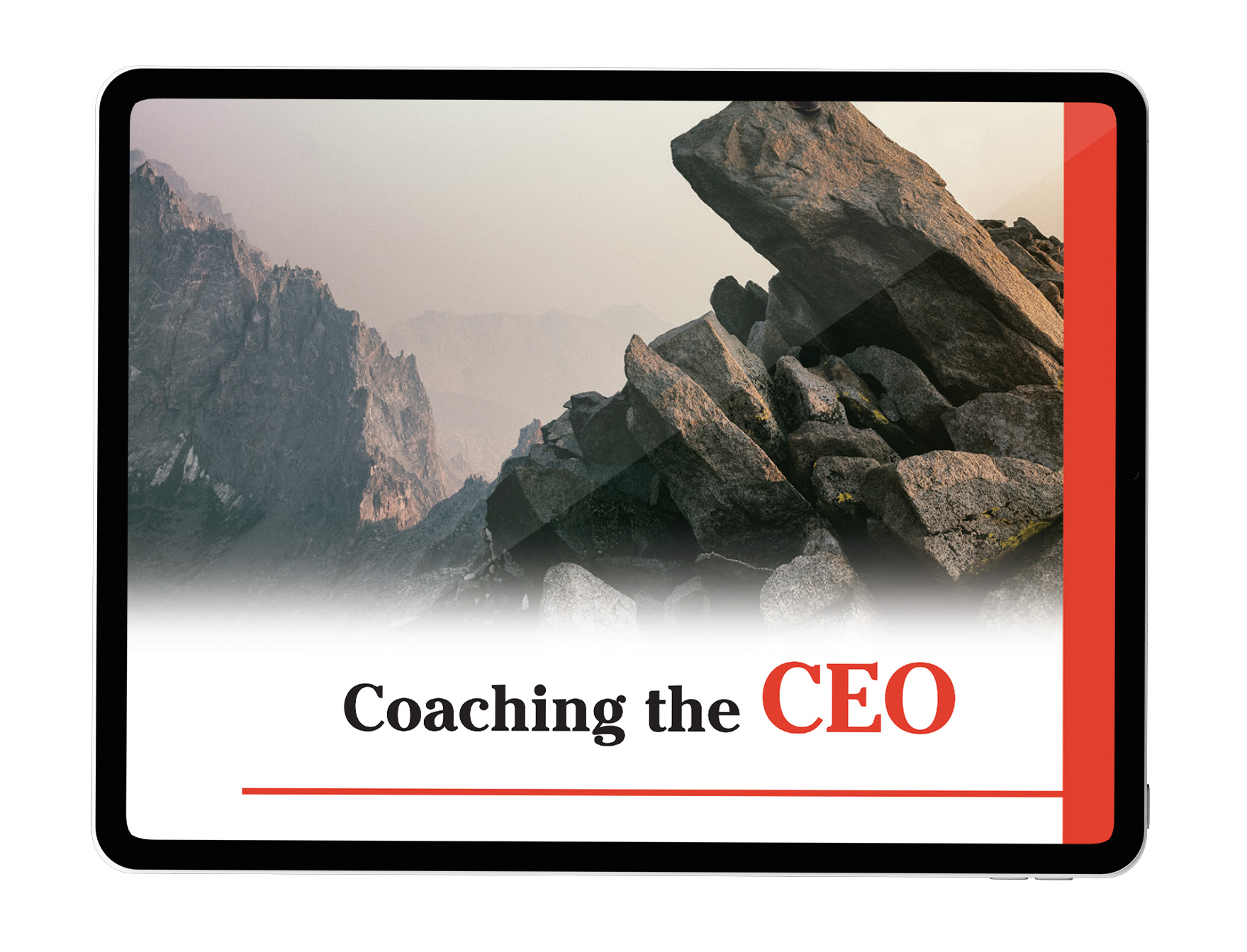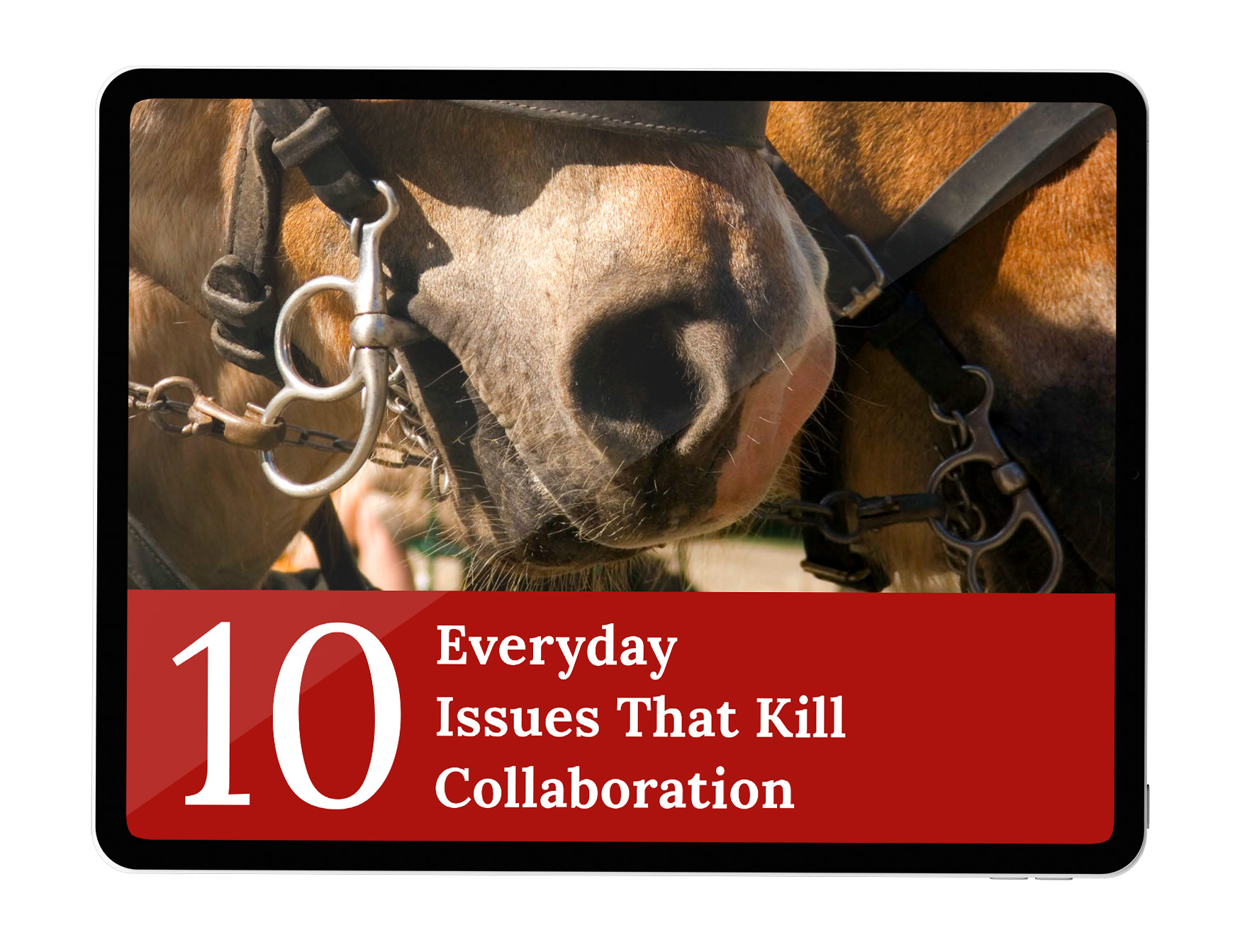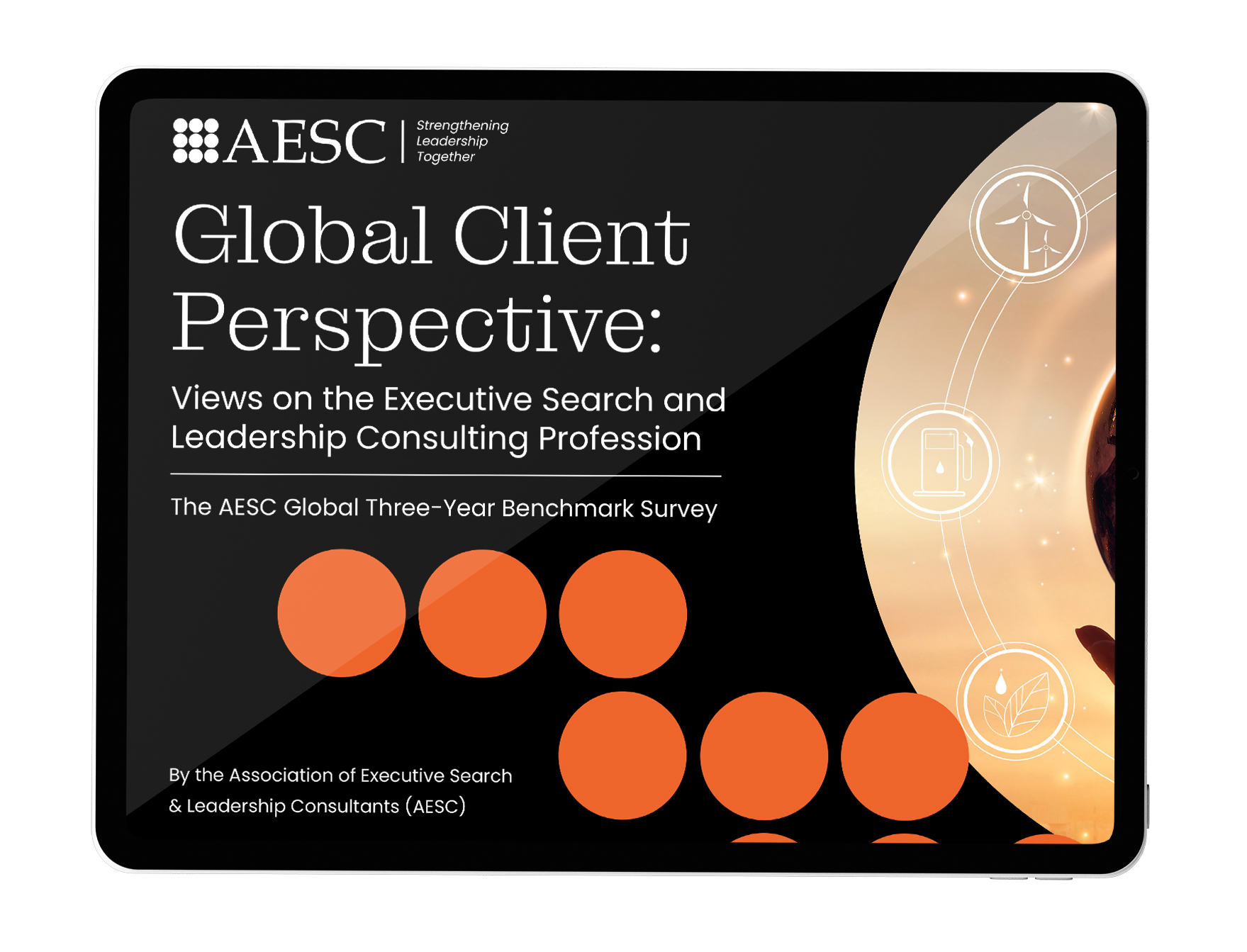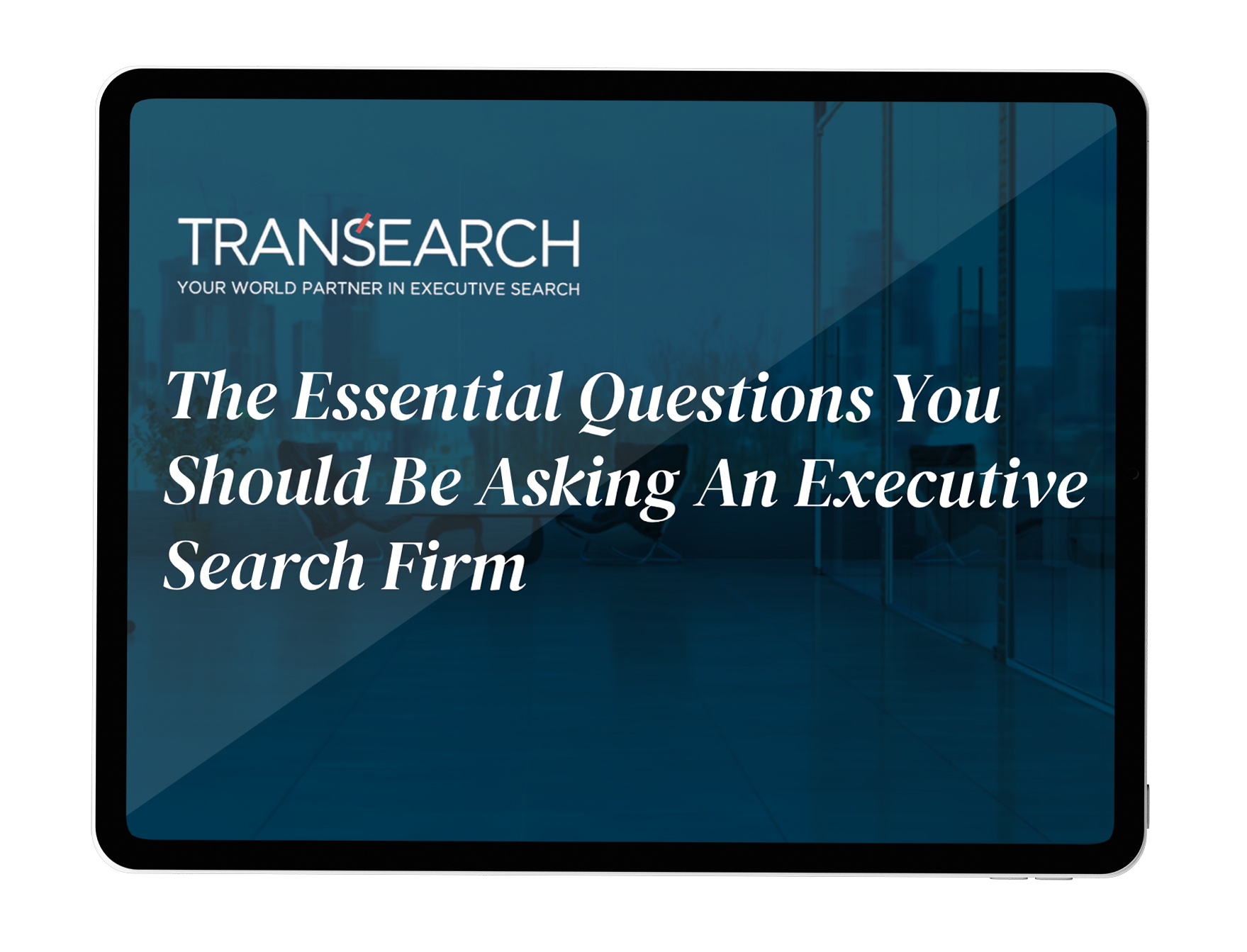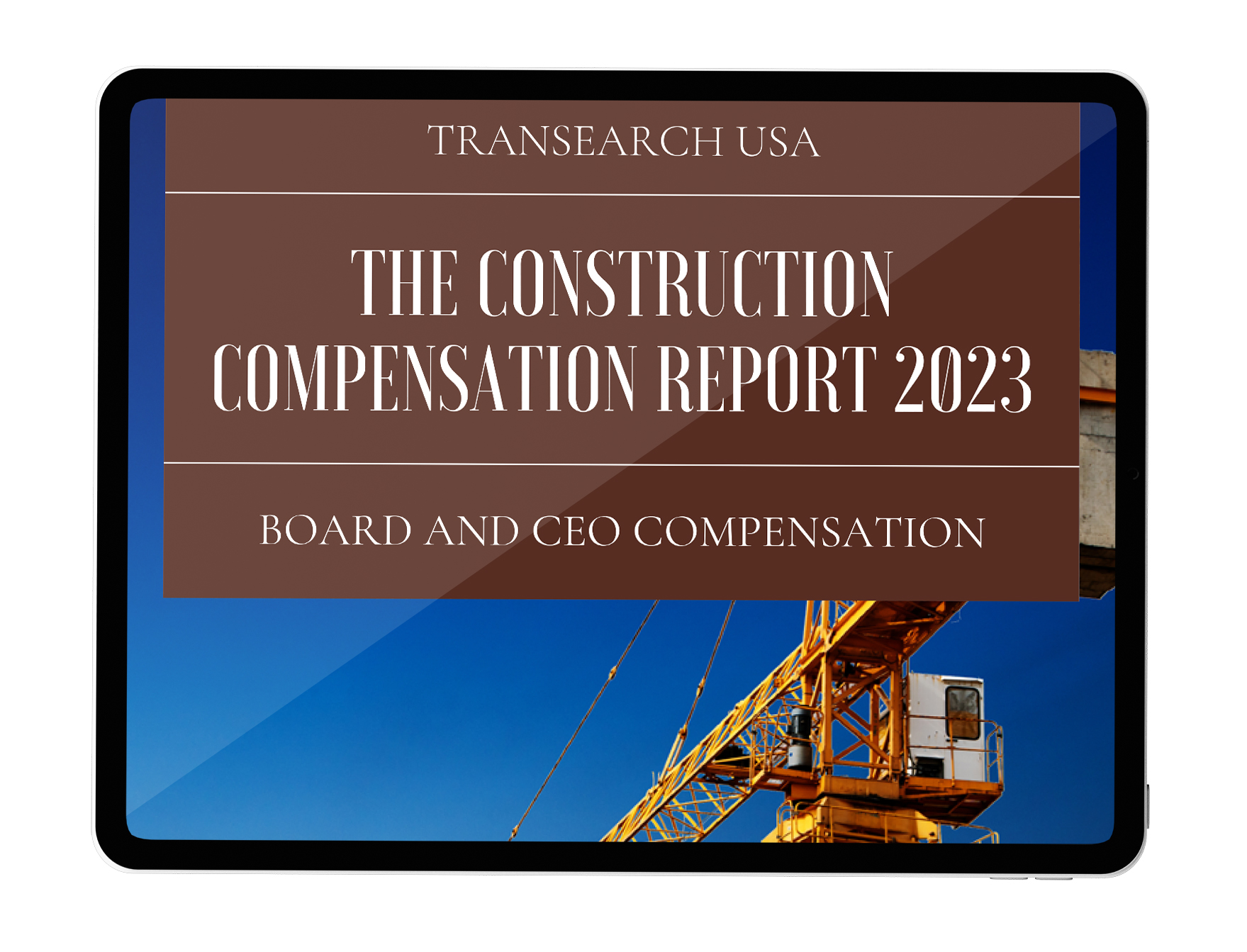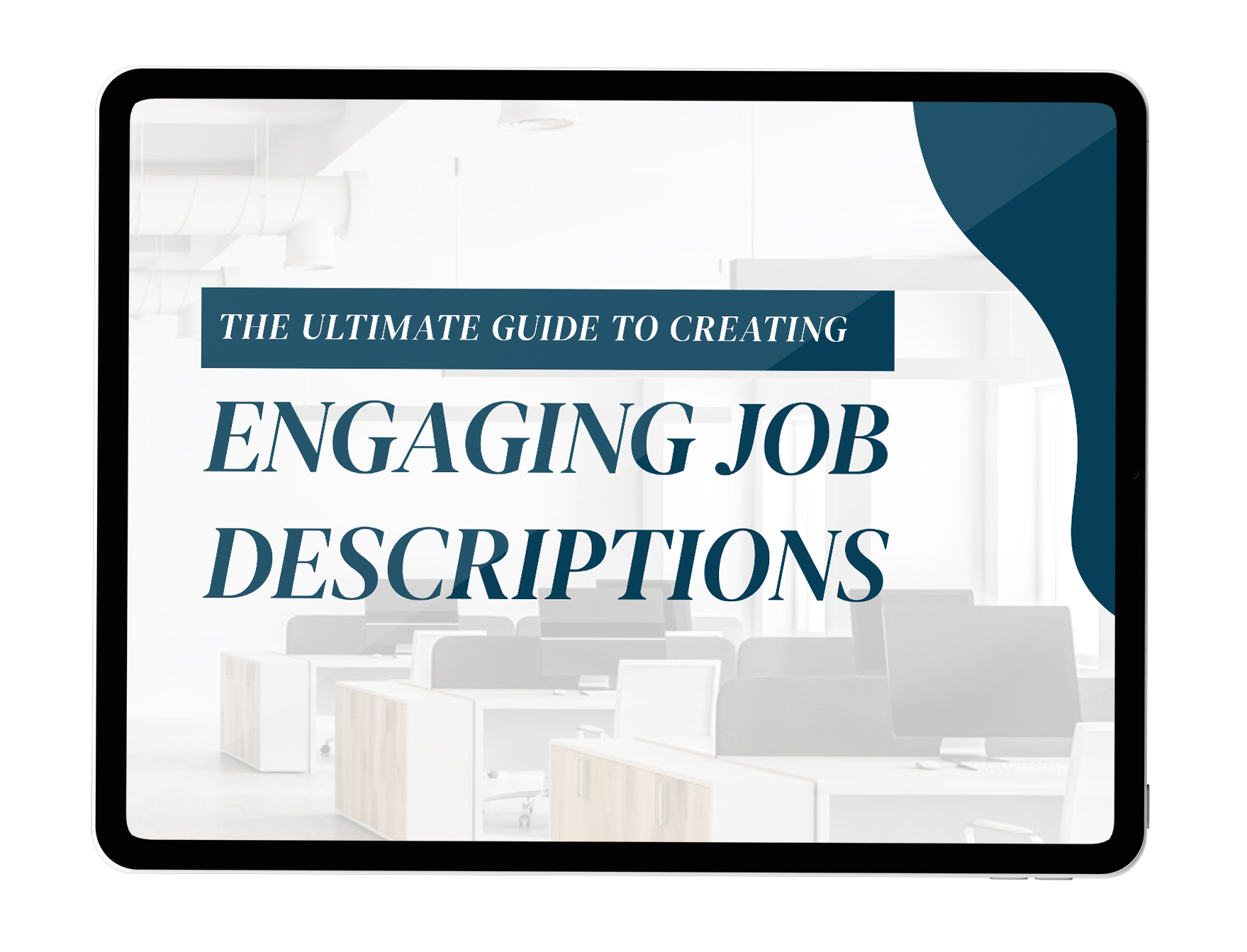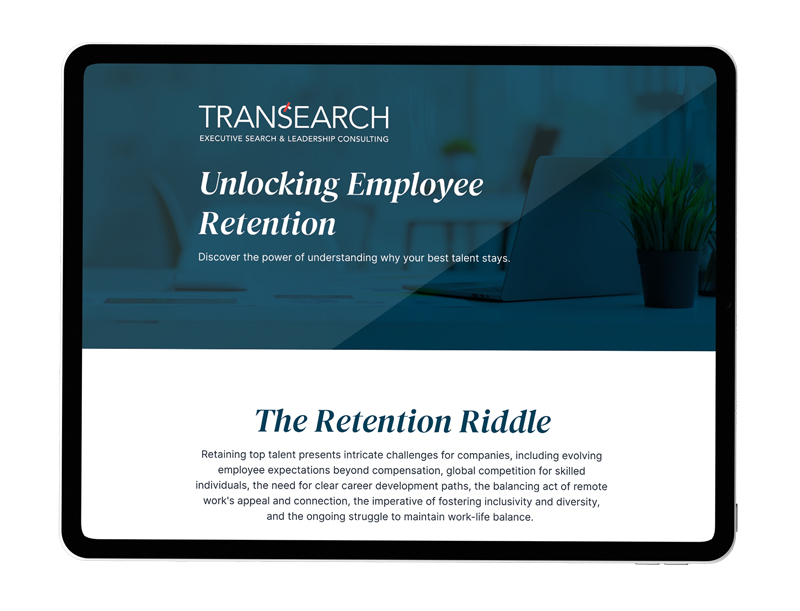The Great Resignation that began in 2021 has created a massive talent shortage and companies are struggling to find new workers. Every day, businesses are losing valuable employees who have found new jobs. It can take weeks or even months to find and train a new employee, which impacts the bottom line.
The most recent data from the U.S Bureau of Labor Statistics suggests that 3% of the workforce – or 4.5 million workers – quit their jobs in November 2021 and there are roughly 65 unemployed workers for every 100 job openings.
As we’re still very clearly in the midst of this turnover cycle, TRANSEARCH wanted to find out more from our clients and partners about how they’re planning to navigate this turnover cycle as we move through the new year in what some are now considering The Great Renegotiation.
We asked questions about talent acquisition and recruiting in 2022, issues that are impacting company growth, and how executives plan to remain an attractive employment prospect in the coming year.
Do you expect to be expanding hiring and recruiting in 2022?

Do you expect turnover in your middle-management and executive positions this year?

Nearly 80% of our survey respondents anticipate turnover amongst C-suite & senior level team members in 2022. The COVID pandemic has created a lot of changes in the way businesses operate. As a result, many companies are looking for new HR executives to help them chart a course through the crisis. According to a study from LinkedIn, as the need to implement hybrid and flexible working environments in 2020 grew, companies sought HR executives to chart a course through the COVID crisis over the last two years. This demand, combined with other factors such as massive early retirement due to the pandemic, caused an upheaval in the market.
Which of the following issues are impacting your growth and talent acquisitions projections for 2022?

Market conditions in this context refers to compensation as well as outside forces like inflation. For many North Americans, income increased by 27% during the 2010s; while cost of living increased at roughly the same rate. Today, we are all feeling the pinch of inflation, and employees are expecting raises that will compensate for the increase AND reward them for increased productivity and performance.
We expect that companies who compete with value added benefits and a differentiated company culture will be better prepared to retain their top talent when they ask for their raises. A few of our respondents also gave a bit more insight into their thoughts on this question:
What are the key reasons why people stay in your company?

More than 90% of those surveyed say the reason their employees stay with their company is because of the leadership. Strong and effective leadership can improve culture, engage a workforce, and instill motivation and inspiration. Gallup research found that employees who are “engaged and thriving” are 59% less likely to look for a job with a different organization in the next 12 months.
Leaders must step up to the plate to safeguard their talent. They need to create and nurture an environment of honest and open feedback where employees feel respected, valued, and have a purpose because people like to work in an environment which inspires, provides recognition and demands engagement.
What are the factors that make you attractive as an employer?

The exodus of top talent from companies across the country has left many employers scrambling to find qualified replacements. For some, finding qualified candidates is more important than ever before, while for others it’s just business as usual. We surveyed a pool of hiring managers asking how they’re coping with this skills shortage in their industry and what we found was surprising.
Retention strategies must be comprehensive to be successful. While “Market Conditions” i.e., compensation is cited as a major force driving job changes; Leadership, Culture and Career Development are cited as primary retention tools. Yes, increasing salaries will help in the short term, but cannot be the only tool to keep people. Leaders must embrace their role in retention, listening to their people, demonstrating empathy and resilience makes leaders better, and that makes the culture better.
What do you think about these results? How has your hiring and recruiting been affected in the last two years? What do you expect for 2022?





















